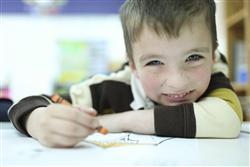Parent Teacher Communication: The Way for Student Success
By Dennette Bailey
There are many issues to consider at the start of the school year. As parents and caregivers we can feel that we are bombarded with things to be prepared for or on guard for. However, it is extremely important to remember that a successful school year is also dependent on something that is inevitable as the year progresses regardless of whether or not we have the skills to be successful at it. That is the ability to effectively communicate with our children’s teachers.
Often times, parents whose students do well may be less prepared when a dip in academic or discipline occurs and requires communication because they have not had many experiences of having to speak with teachers. On the other hand, parents that have had students that struggle in school may have had so many interactions with teachers and administration that their frustrations interfere with their ability to communicate effectively. There is also the parent who has their first child in the school system and thus, the methods on how to communicate and collaborate with their child’s teacher are very new to them.
Here are 7 tips to help you effectively communicate with your child’s teacher. These may help you avoid frustration as well as gain the confidence to communicate with your child’s teacher in a manner that will aid in your student having a great school year.
- Establish a rapport early–
Either at the open house or during the first week of school make direct contact with your child’s teacher. It will be excellent if your child’s teacher can put a parent face to a student face. However, if you cannot attend the open house make contact by email or by leaving a voicemail with the teacher. This should be a brief introduction wherein you simply state your name and your student’s name. You should explicitly say to the teacher that they have permission to contact you for any reason and then you should provide them with the best method of contact for you.
- Make your child stand out-
Always say something to your child’s teacher that would be hard for them to forget. The line I use is- “if my child drops a pencil and you don’t like the way the pencil fell, call me.” It seems extreme but what teacher will not remember that? In the event you are not able to attend the open house this should be in the email or voicemail to the teacher. Follow up in the same correspondence with – “my child is a great student and is looking forward to your class.”
- Make the point of contact clear-
Establish early what form of communication will work best for you and the times that you are readily available for phone or in person communication. Daily check this form to ensure you do not miss any points of contact your child’s teacher may have made.
- Be Positive-
Always communicate positively to your child’s teacher and in a respectful manner. Sometimes the reason for the communication will not be to tell you how great your child is doing. Stay positive. This doesn’t mean that you agree with everything the teacher says, but you are respectful. Always speaking positively about your student might mean for example, that if your child has said something inappropriate in class, your response should indicate that your student is “learning to express himself or herself more appropriately,” as opposed to “my student has a potty mouth.”
- Be aware of school expectations on teacher communication–
Rarely should the first call from a child’s teacher be to tell a parent that their child is being suspended from school. Schools almost always have a discipline policy. As a parent you should be contacted and informed if your student has been causing a disturbance in class.
- Make the most of special occasions–
Often times during the school year there are opportunities to treat teachers with gifts or cards to show them appreciation. Be sure to make the most of these instances, if you are going to participate, by having your child label clearly that the gift is from the student and the students’ family. For example the card should say from Sam and his family the Jones’. Also, always put a note to remind the teacher that you are available for communication about your student concerning any issue. For example- “Thank you Ms. Rogers for teaching our student. We are so appreciative. Please feel free to contact us if you have any concerns. We are here to help you!” From Sam and his family the Jones’.
- Remind your student of their responsibility-
Teach your student early how to communicate with their teacher and problem solve any issue they may have. Role play with them on how to talk to their teacher when they are having a problem. Teach them how to speak positively to the teacher and teach them how to recognize when it is appropriate to speak to the teacher. For example, raising their hand in the middle of a lesson to discuss their disagreement on a grade would not be acceptable communication time.
These are all tips to help you and your child have a great school year. Practicing these strategies from the start of kindergarten will be helpful to you and your student and are sure ways to school success.
Read more educational blogs here.
Want to see more blogs like this and get notifications on local events and happenings? Subscribe to our free weekly newsletters here.

![[Clothes Hanging Storage Organizer] - Our hanging closet organizer comes with 2 sets of weekly labels in different colors, so you can choose according to your preference. There are 6 shelves of open storage space for easy access to clothes. Specially...](https://m.media-amazon.com/images/I/41Bjs3vGEcL._SL160_.jpg)



































These are great reminders for teachers of all grades! Thank you for putting this all done in writing, Dennette!